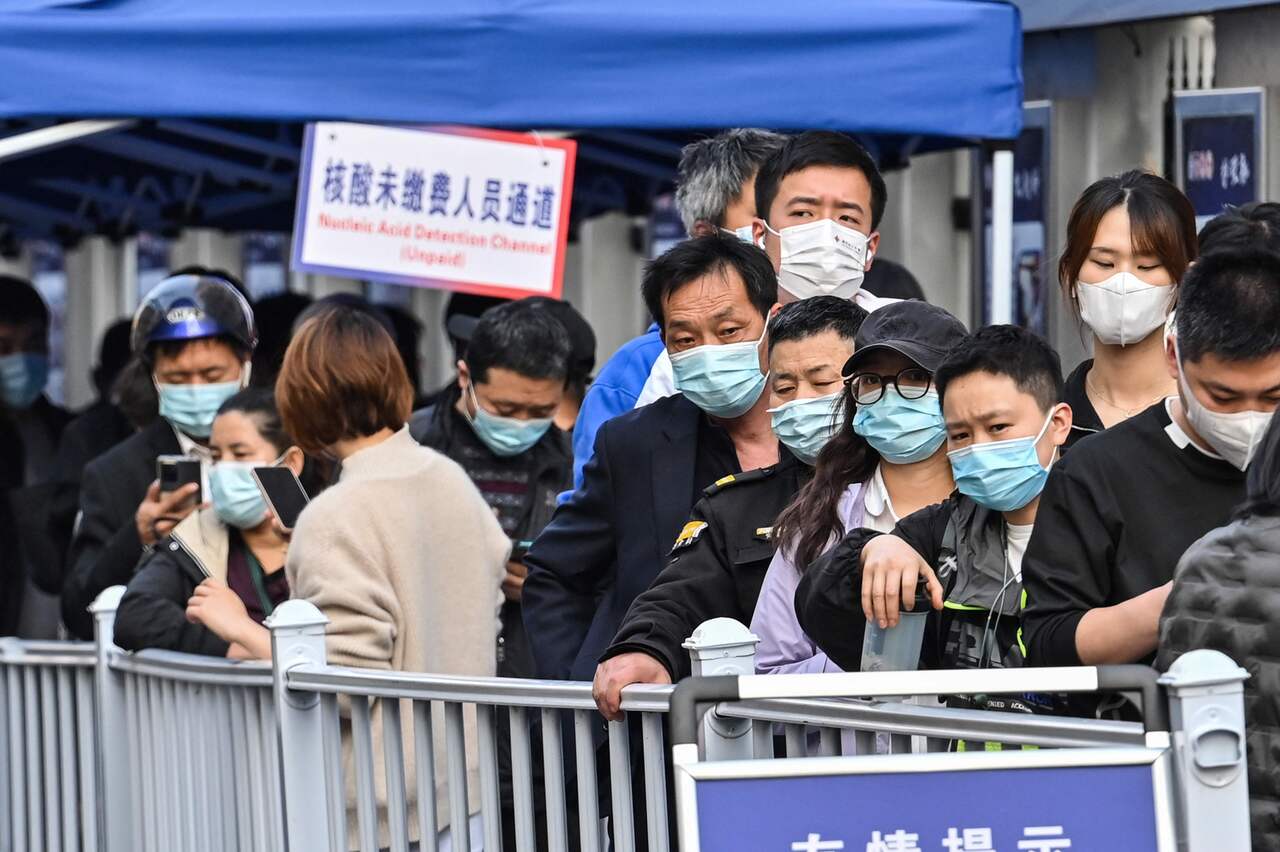China to allow rapid antigen tests for first time as Covid-19 cases surge
Sign up now: Get insights on Asia's fast-moving developments

Mass testing is a key tool in China's arsenal for fighting Covid-19.
PHOTO: AFP
BEIJING (BLOOMBERG) - China will allow the use of rapid antigen tests to diagnose Covid-19 for the first time, as a fast-spreading Omicron outbreak challenges its Covid-zero playbook, pushing cases to levels last seen in Wuhan at the start of the pandemic.
While used widely in other parts of the world, rapid tests were restricted in China, where the virus has been contained for most of the past two years.
The kits will now be available for use by ordinary citizens and clinics, the National Health Commission said in a statement Friday (March 11).
The shift comes as China grapples with case numbers not seen since the original outbreak, with 1,100 new domestic infections reported Friday, the first time the daily tally has hit four figures since the peak of the outbreak in Wuhan, where the virus was first detected.
Mass testing is a key tool in China's arsenal for fighting Covid-19, which it is still trying to eliminate as other parts of the world open up. Rapid tests, which can be used easily at home, may help China detect and stem outbreaks more quickly, especially among asymptomatic carriers.
Other places have shifted towards use of rapid tests when their lab testing systems were overwhelmed, so Friday's move may signal Beijing is girding for an uptick in cases or for a shift to allowing more virus to circulate.
The Covid-zero strategy has left China increasingly isolated, with stringent border curbs and lengthy quarantines still in place, as travel restrictions are fully dismantled elsewhere. It's also resource-intensive, and impacting growth, with some containment measures disrupting business activity and dampening internal spending on services.
Speculation about the move triggered a rally in test maker stocks on Friday. BGI Genomics rose by the daily trading limit of 10 per cent in Shenzhen, while Shanghai Labway Clinical Laboratory surged 20 per cent and Hangzhou Biotest Biotech climbed as much as 14 per cent.
Beijing recently pledged it would be sticking to Covid-zero, but there are signs the country's health officials and experts are at least considering how they may exit the approach and live with the virus as endemic.
China approved the antiviral pill Paxlovid developed by Pfizer last month, a move seen by many as evidence of that planning.
That said, any shift will be slow and unlikely to occur before 2023, given the need for stability in a politically important year for President Xi Jinping, people familiar with China's thinking have told Bloomberg News.
Speaking to reporters at the end of China's National People's Congress on Friday, Premier Li Keqiang said that officials will work to make China's pandemic response more scientific and targeted, and to maintain the normal functioning of everyday life and supply chains.


